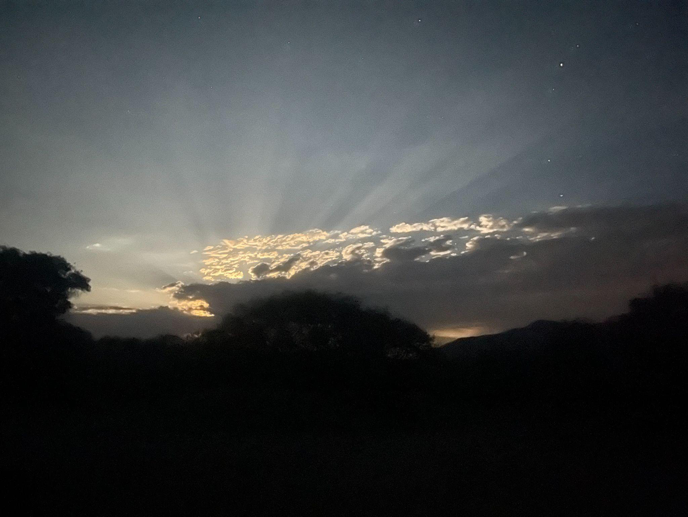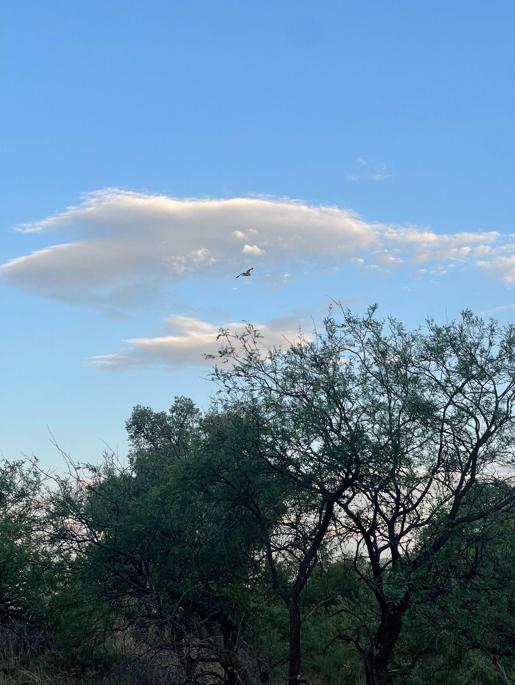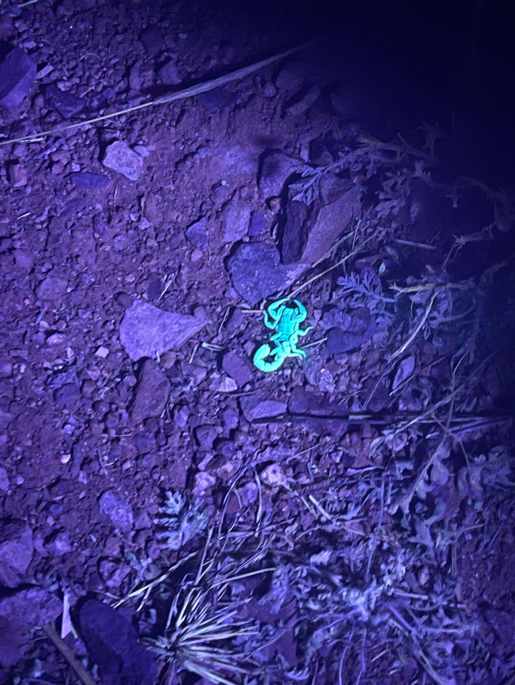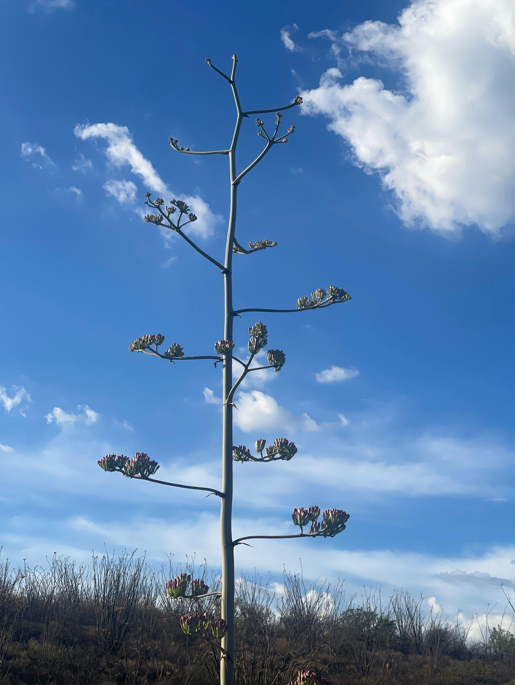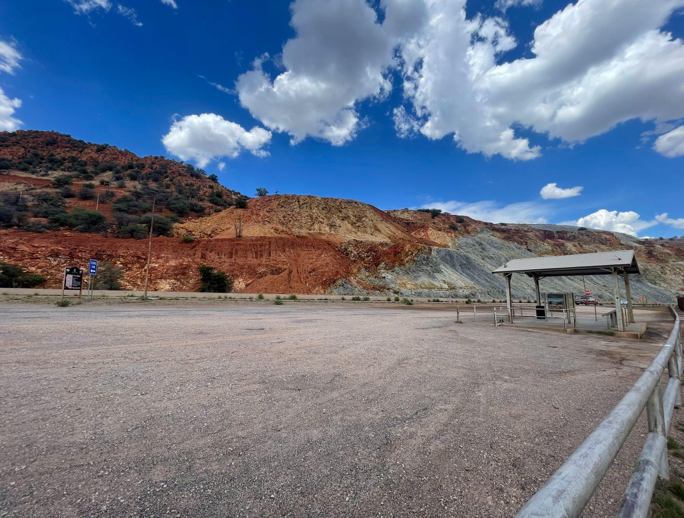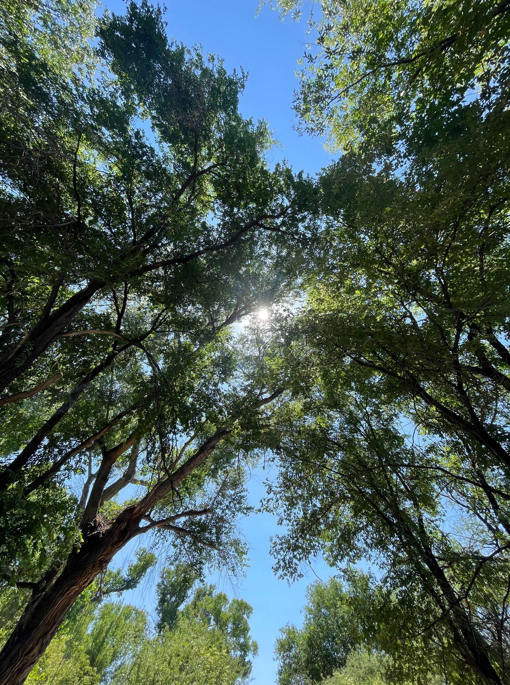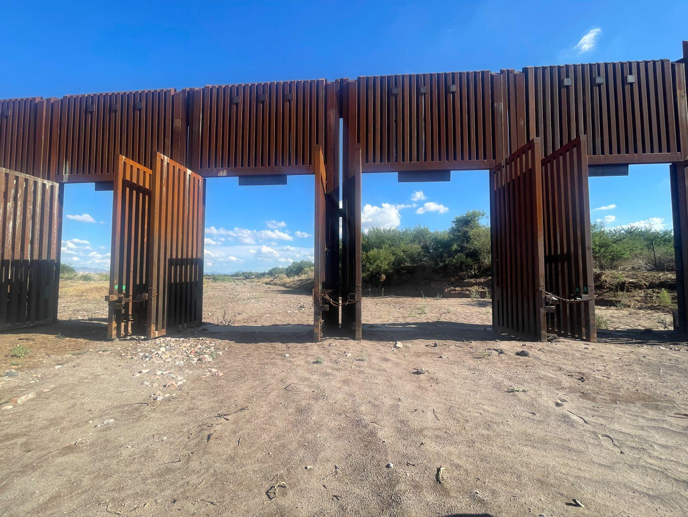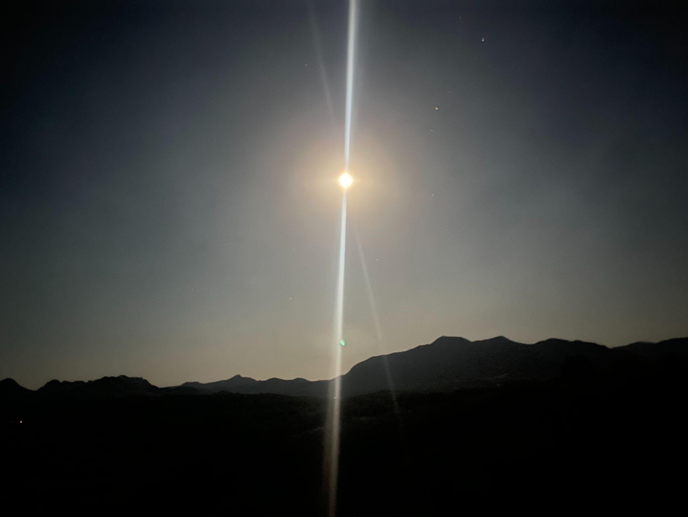Presented
by Dillon Clark
This prose poem/essay encompasses the work I did while in Patagonia. Much of my work focuses on being present in a place, making observations, and taking in what I learn. I try my best to use my body as a research tool, a way to know the world, by engaging with my senses. I came to Patagonia to do environmental research, and this work blends different observations out hiking, driving around, doing field work, and looking out over the landscape around where Joey and I stayed.
It also addresses memory and family history. My mom was born and raised in Vegas, the Southwest, and then moved to the East Coast as a young adult; I’ve done the inverse as a young adult, being born and raised on the East Coast and then moving to the Southwest. My grandparents have made similar movements back and forth between the two locations. This is a common occurrence—there’s lots of folks I meet out here from the East Coast, but what I’m trying to explore is why there’s these specific movements in my family between two very particular places at very particular points in life. Being in Patagonia gave me space and time to think about this while deepening my own relationship with the Southwest.
As the piece looks at memory, I’m also interested in exploring how memories are passed down through bodies and generations, and how, even in a memory’s unspokenness, there may still be bits or pieces of those memories alive inside of us. Memory is what grounds us in the past while the body is what grounds us in the present, a living relic of its own, a compiling of memories and biological information. I’m interested in what it means to access that, those memories buried in cells or souls, and how the natural world and its systems mimic this. Or it’s that we mimic it. Like an agave.
Much of the information and noticing in this essay comes from folks teaching me things, pointing them out to me: Caleb and Francesca from Borderlands Restoration Network about native plants, ecosystems; Joey and Javier about birding and living in the borderlands region; Dure and Claire about plants, birds, art, food, family, time; Paco and Susan about policing, immigration, and the border. Thank you all.
***
PRESENTED:
Out on the porch, Javier and Joey teach me about birding. The first I learn to identify is a “Seis Phoebe.” For the next few I days, I wonder what about the bird makes it related to the number six. Do they travel in groups of six? Lay exactly six eggs? Sleep for six hours a night?
Later in the trip, I ask Joey, Why are they called a Seis Phoebe?
They tell me that it is Say’s and not Seis.
Say as in to speak, say as in to push the internal outward, say as in to manifest what’s inside a body into a tangible form. The birds go on speaking all day in the eaves of the porch, the brush sloping down the sides of hills. When Javier, Joey, and I go to inspect the back of the house, we find a bonded pair nesting in the crook of a black lantern on the back porch. We draw closer, and the male flies to the ground, pretends to have a broken wing—squawking, chirping at us, he hops around making noise to draw us away from the nest. A diversion. An act of protection. A possible offering-up-of his body so that the eggs, the chicks can live. They, separate from, but a continuation of each of the birds’ bodies. We go inside and see him return to the nest through the back window, fine—both go on caring for what’s to come.
*
At night, I practice extending my body on the cold of the tiles in the shower. Water running over me, I push my legs out as far as they will go, throw my hands over my head till the vertebrae of my spine become feelable, let the water drip down the wet of my hair and be received by the bottom of my lip.
I learn in therapy that there is much information one’s body can know before the conscious mind is aware of it—so much information it cannot remember that, instead, the body stores it for the mind. Memory kept in skin, in muscle, in membrane, ligament, bone, cell, molecule. When writing things, I spend most of my time stuck in that part of myself, away from my body, in my head, milling over a word in a poem, a new idea for what to say in prose.
I feel a pulling at the bottom of my stomach, a grumble, I am hungry. My body telling me what it itself needs, right now, presented.
*
How to acknowledge the web of energy which encircles, connecting every living thing to every other. Aliveness on display around, a circle blessing all bodies. A barrier but permeable.
This too is a rhizome, an arundo reed weaving its web of bodies through the soil but without harm, endangerment.
Like how Caleb says the trees tap into fugal networks beneath the ground we are walking on.
An exchange of information begins, an exchange of nutrients, living being aliving other living being.
Or the agave, blooming only every thirty years, sending pollen via bat bodies migrating from Oaxaca, sustaining those bodies as they travel north to birthing caves.
Stored in pollen: thirty years of information: temperature: rainfall: wind. The next blooms carrying the sorrow and bounty of the past.
I feel my body letting itself into itself, electric just under my skin.
I remember little now about my childhood.
Have you kept the information, the memories for me?
*
Mom.
You tell me about your growing up in Las Vegas, the heat of the Mojave. Sitting in the beds of pickup trucks, driving all night to watch the meteors build a waterfall of the sky.
I am learning now. We were grown in provinces of the same body, regions connected to one living whole.
The Mojave is a piece of the Sonoran, not separate from. If I look at it on a map, the desert's whole body extends across a continent, you grew in its head and I in its stomach.
Its flesh from space, unbordered.
I know you know things I never will, not now, at least—they, tucked somewhere in tissue behind my lung.
You are from here, a piece of the aliveness breathing a purple sky, whispering in a flurry of sand.
Am I too?
You and grandfather, and grandfather's father.
His bones buried in land I have now learned to walk on.
When we first drive over the mountains east of Tucson, you stare out the windshield into the city as it comes into view: It looks like Vegas did thirty years ago.
The car is silent as shore air before a hurricane.
I glimpse, driving, from the corner of my eye you remembering.
Silence and wonder and memory all glazing your voice, It’s pretty, you say.
It was necessary for things to happen like this: you to come to the east and me to the west. Why I am still uncertain. The chain extends backwards over the fence.
The hackberry is developing in front of me shooting its infant canopy up to the sun, light filtered through, soft, like a morning that will never descend into the heat of a day. A passionfruit clings to its body, flowering, fruiting—its vines like threads unable to be pulled on. I have this here in my body.
It is possible for memory to be inherited, passed down along a branch, a root. Great grandpa to grandpa, grandpa to you, you to me. Do I see them or feel them? From body or mind?
Maybe I never came here to write but to remember.
Like someone once said: even future memories unhappened can still exist like seeds yet to germinate. One must trick them into sprouting.
Francesca tells us that the seeds are finicky. Sometimes, one must put them in a dark room, a fridge, for twenty-one days to get them to wake.
Maybe it is fate that is the dark, cold room in the back of the house.
To say something aloud is a kind of germination.
*
As Joey says, It looks like a spine lining the hills.
Reverse parasitic, the spine leeches its toxins into the soil.
The milkweed goes on growing anyways, sprouting flowers for the butterflies to feed.
Through the metal vertebrae, the landscape looks and lives and loves the same.
The desert: a body foist into the guillotine of nationhood.
The flood gates today are open; a monsoon is coming.
In the distance, clouds extended themselves downward: puckered mouths towards cheeks of sand, follicles of mesquite, ash, hackberry.
Leaves undrying, eggs being laid.
*
Both love and violence can be passed down at the same time.
The two of them held together, hand in hand, like glass globes orbiting in the heart of the sun.
Maybe it is that loving something is a type of violence, felt—a strong force of feeling.
Of opening, a door winging itself against the railing.
I tell Leah and Cam awhile back that I am afraid of the essay, how naked it makes me feel.
I want to be visible to myself, to attempt looking through the mirror instead of into. Without force.
*
Electricity visits me when the doors open and the lights turned out.
Fluid coursing around a body, rain falling, thrumming like hummingbird wings, hearts beating. The moon is full, engorged, a world of topaz gifting the night, throned by mountains, teeth.
One could never look up upon it. It can’t be observed, only lived in—skin naked and drenched in its soft torrent.
O, body, small piece of blood machinery, tether to past and future, the doors are all open, hold me.
***
